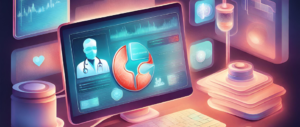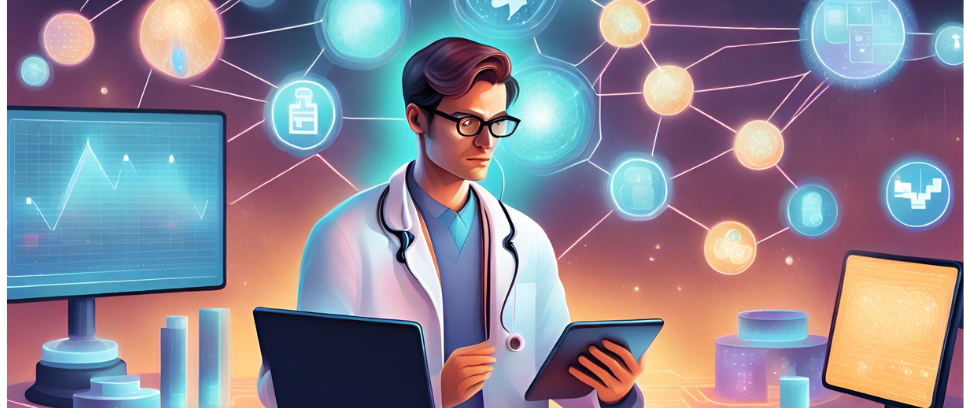In the dynamic landscape of healthcare, data scientists play a pivotal role by harnessing the immense pool of information generated daily.
From patient records and medical imaging to drug trials, the healthcare industry provides an abundant source of data for meticulous analysis.
This blog post delves into the realm of data scientists in healthcare, shedding light on their crucial functions and the transformative impact they wield on the industry.
What does a Data Scientist in Healthcare do?
The role of a data scientist in healthcare is to analyze, interpret and draw insights from large data sets to improve patient outcomes and the overall effectiveness of healthcare systems.
They use data analytics, machine learning, and statistical modeling techniques to uncover patterns and relationships within data that can help healthcare providers make better decisions.

Here are some of the ways Data Scientists contribute to the healthcare industry:
1. Develop Predictive Analytics
One of the primary responsibilities of data scientists in healthcare is to develop predictive models.
These models use machine learning algorithms to analyze vast amounts of patient data and identify potential health risks, predict patient outcomes, and improve patient care.
For example, a data scientist may use a predictive model to analyze patient data and identify patients who are at high risk of developing a particular disease. This information can help doctors proactively monitor and manage these patients’ health, improving their overall quality of life.
2. Drug Discovery and Development
Data scientists are also making significant contributions to drug discovery and development.
By analyzing large datasets, data scientists can identify potential new drugs and treatments that may be effective in treating a range of diseases.
They can also use data analytics to monitor drug safety and efficacy, ensuring that patients receive the best possible treatment.
3. Identify Inefficiencies
Another essential role of data scientists in healthcare is to identify inefficiencies within healthcare systems.
By analyzing data on patient flow, treatment outcomes, and resource utilization, they can identify areas where healthcare providers can improve efficiency and reduce costs.
For example, they may identify that a particular hospital department has a higher rate of readmissions than others. By investigating the cause of these readmissions, healthcare providers can take steps to improve patient outcomes and reduce the financial burden on the healthcare system.
4. Tele-Medicine
Data scientists are also driving the development of personalized medicine. By analyzing genomic data, data scientists can identify genetic markers that are associated with specific diseases.
Telemedicine allows patients to receive medical care remotely, reducing the need for in-person visits and improving access to care. This information can be used to develop personalized treatment plans that are tailored to the patient’s unique genetic makeup.
5. Improve Patient Outcomes
Data scientists are also working to improve patient outcomes by identifying ways to improve the quality of care.
For example, they can analyze patient data to identify best practices and develop protocols that improve patient outcomes.
They can also use data analytics to identify inefficiencies within the healthcare system, such as long wait times or overutilization of resources, and develop solutions to address these issues.
6. Improving Patient Engagement and Experience
Data scientists in healthcare also work on improving patient engagement and experience.
They analyze patient feedback and social media data to understand patients’ preferences and expectations, helping healthcare providers improve patient satisfaction.
In conclusion, data scientists in healthcare play a critical role in transforming the industry by improving patient outcomes, identifying new treatments, and reducing costs.
They use data analytics, machine learning, and statistical modeling techniques to uncover insights within large data sets that can help healthcare providers make better decisions.
As the healthcare industry continues to generate vast amounts of data, the importance of data scientists in healthcare will only continue to grow.
 Pin
PinIf you really want to get into Data Science, consider checking out our world-class Data Science programs, now in collaboration with E&ICT IIT Guwahati!
Remember to check out our collection of Data Science resources to keep you learning and practicing, and you’ll be well on your way to having a successful career in data science!






